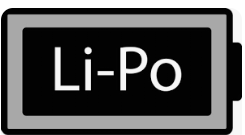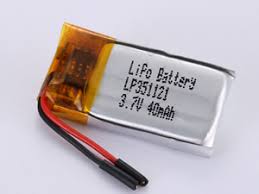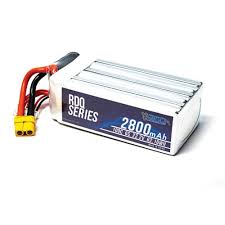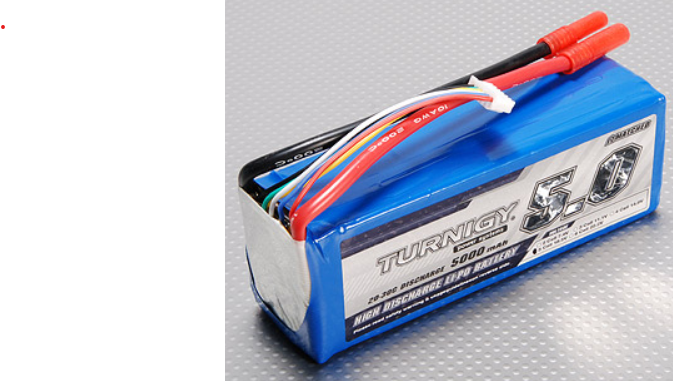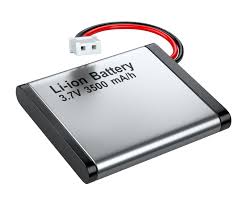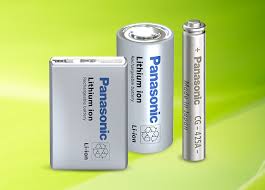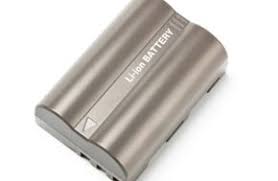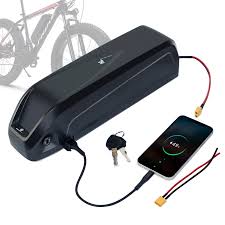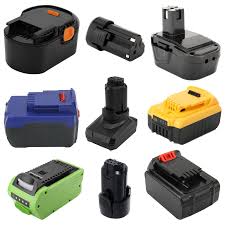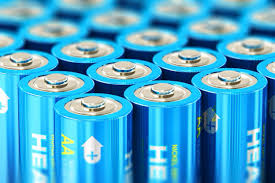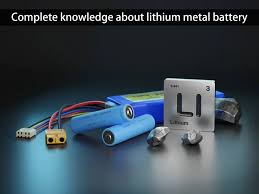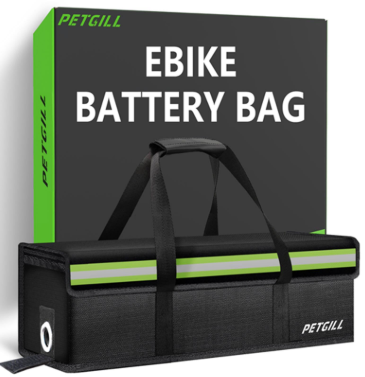
Various batteries are utilized and stored across the College of Engineering campus. Due to their elevated fire risk if not operated, stored, or if they become damaged, proper precautions must be taken. The following webpage is provided to educate the users and occupants of the CoE campus.
COE Buildings, E-device Storage Registration
CoE Battery Safety and Disposal Training: Recommended for all College of Engineering personnel using batteries on campus or at home.
Lithium-based Batteries
Types of Lithium-based Batteries
Lithium-polymer (LiPo) batteries use a solid or gel polymer electrolyte, allowing for flexible, thin, and lightweight designs suitable for drones and wearables.
To identify the type of battery look for the following symbol on the battery:
- LiPo batteries offer higher power discharge and can be made into custom shapes
- LiPo for high-performance devices requiring unique form factors
- Electrolyte: Solid or gel polymer electrolyte.
- Form Factor: Highly flexible, allowing for thin, custom shapes, and enclosed in a flexible foil pouch.
- Energy Density: Good energy density, though often lower than traditional Li-ion.
- Weight: Lighter and more compact for the same capacity compared to Li-ion.
- Stability & Safety: More stable due to the gel electrolyte, reducing risks of leakage or fire.
- Lifespan: May have a shorter lifespan in terms of charge cycles, but can last longer if maintained properly.
- Applications: Used in drones, RC cars, wearable devices, and other applications requiring lightweight and flexible design.
To ensure LiPo battery safety, never charge them unattended, always use a smart charger designed for LiPo batteries, and store them in a fireproof container like a Lipo safety bag. Regularly inspect batteries for swelling or physical damage and avoid over-discharging or physical damage by following voltage alarms and being careful during use. If you notice any abnormality, such as a smell, swelling, or overheating, stop use immediately and move the battery to a safe, non-flammable area.
Traditional lithium-ion (Li-ion) batteries use a liquid electrolyte, typically encased in metal or plastic housing, and are generally more energy-dense and stable but heavier.
To identify the type of battery look for the following symbol on the battery:
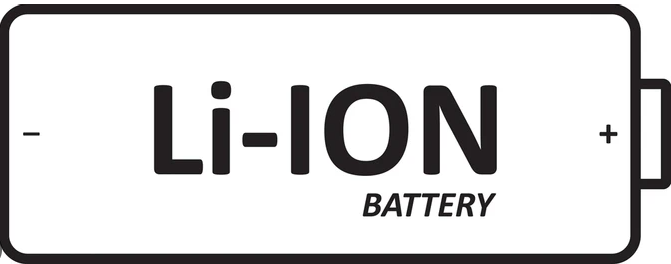
- Li-ion batteries often provide a longer lifespan and are safer when damaged.
- Li-ion for consumer electronics needing a long shelf life and stability
- Electrolyte: Liquid or gel electrolyte.
- Form Factor: Rigid, typically housed in a metal or hard plastic casing.
- Energy Density: Higher energy density for their size, meaning they can hold more energy.
- Weight: Generally heavier than LiPo batteries.
- Stability & Safety: More stable and less prone to swelling or combustion if damaged and properly designed.
- Lifespan: Offer a long shelf life and are reliable for long-term use.
- Applications: Ideal for laptops, smartphones, and other electronics.
-
Key Differences in a Nutshell
- Structure: Li-ion uses a rigid casing, while LiPo uses a flexible foil pouch.
- Portability: LiPo is lighter and more flexible, making it easier to fit into custom designs.
- Performance: LiPo can offer higher discharge rates, while Li-ion provides steadier current and longer shelf life.
- Lithium Metal (LiM) Batteries
- Batteries found in watches, key fobs, hearing aids, etc.
- Generally non-rechargeable
Hazards
Fire: Due to the components associated with Li based batteries, they are inherently flammable and or reactive with air or water. Typically battery cells are sealed to protect the reactive components from air and water. If the seal is broken due to damage or abuse, it will often trigger a fire.
Thermal Runaway: An overheated battery can also cause a exothermic reaction which will cause the battery to catch fire and continue to react until it is complete.
Signs of a Problem
- Overheating
- Bulging
- Leaking
- Change in color or emitting a strange odor and or noise
Proper Storage and Charging
- Purchase batteries and chargers from a reputable source. Look for the different Nationally Recognized Testing Laboratory stamp on the packaging and product.
- Only use the charger that was provided with the device and charge the batteries in accordance with the manufacturers instructions.
- Do not leave Li powered devices unattended while charging.
- Charge on a flat, dry, area away from any direct sunlight, liquids, or combustible/flammable materials/flames.
- Store in an room-temperature environment, void of extreme high or low temperatures.
Containment Bags and Boxes
Specialized containment bags and boxes are available for purchase from various retailers, for both storage and safe charging of batteries. The following are examples of some of these products available:
- PIG™ Obsidian™ Lithium Battery Storage and Shipping Case: More details
- Lithium Charging Safety Bags: More details
Battery Disposal
Alkaline Batteries – Please throw your alkaline batteries in the normal trash.
Lead Acid Batteries – Lead acid batteries (car type and gel cell) can be returned to the vendor from which it was purchased. If you are unable to return the battery to a vendor, please contact Physical Plant Customer Service at 608-263-3333 for a pick-up request. All caps on the battery must be present. If the battery is leaking, it must be secured in double plastic bags at least 4-mils thick. Please fill out a chemical pick up request form for leaking batteries only.
Nickel Cadmium Batteries (Nicads) and nickel-metal hydride (NiMH) – These batteries should be purchased from a vendor who will accept the old battery. If you are unable to return the battery to a vendor, please contact Physical Plant Customer Service at 608-263-3333 for a pick-up request or find a battery recycling tower located in your designated building (see image below).

Lithium Batteries – Lithium batteries should be purchased from a vendor who will accept the old battery. If you are unable to return the battery to the vendor, please contact Physical Plant Customer Service at 608-263-3333 for a pick-up request or find a battery recycling tower located in your designated building. Please tape the terminals on these specific batteries before disposal.
City of Madison, Lithium battery disposal recommendations
Please check with SWAP, 608-497-4440, for pickup and reusability of computer batteries.
Battery Safety Related Training
- CoE Battery Safety and Disposal Training: Recommended for all lab researchers in the College of Engineering.
